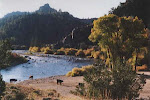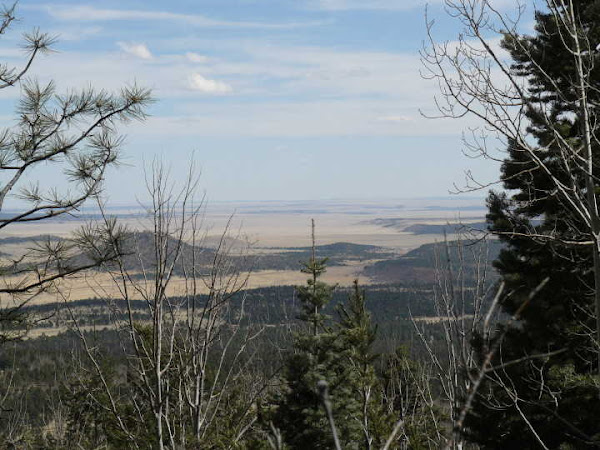Thursday, January 7, 2010
Gas complaints jump to TCEQ's top priority--CST 12-24-09
Gas complaints jump to TCEQ's top priority
Residents can report odors, other problems with shale facilities
06:12 PM CST on Thursday, December 24, 2009
By Peggy Heinkel-Wolfe / Staff Writer
Complaints about odors and other pollution at Barnett Shale gas facilities -
be they wellheads, metering stations, compressors or other facilities - have
become a top priority at the Texas Commission on Environmental Quality.
Enforcement officials in Austin issued new complaint and investigation
procedures to the regional directors last week, after health concerns by
Dish residents came to the fore.
Members of the Texas Oil and Gas Accountability Project pushed for new tools
and new procedures, which include odor logs and nuisance affidavits that
residents can complete themselves.
Although Dish residents pushed for the procedures, people anywhere in the 19
counties of the Barnett Shale gas development can make a report, TCEQ
spokeswoman Andrea Morrow said in an e-mail.
TCEQ doesn't have jurisdiction over all complaints about operations at
natural gas facilities, but the agency has a good relationship with the
Texas Railroad Commission in dealing with those complaints, according to
Morrow.
For example, TCEQ can take complaints about odors, emissions and spills that
threaten soil and water quality beyond the production site.
Odor complaints are harder to pin down than those emissions that can be
seen, such as smoke or dust, according to Kevin Ware, an environmental
engineer with Denton-based KJ Environmental Management Inc.
Not all odors associated with toxic compounds are highly offensive or
necessarily unpleasant. Mercaptan and other gas smells are usually
offensive, but people should be aware of other peculiar odors, such as
rotten eggs, and sweet or sour smells, Ware said.
"When hydrogen sulfide first hits your nose, it smells like rotten eggs,"
Ware said, adding that if you can smell hydrogen sulfide, that's better than
when you can't. At higher, more toxic concentrations, people can't smell
hydrogen sulfide.
Other toxic chemicals associated with natural gas production, known as
aromatics, have a sweet smell, "like nail polish," Ware said. Those
compounds - benzene, toluene, ethyl-benzene, xylene and naphthalene - have
known effects on human health, from respiratory and neurological disorders
to cancer.
State environmental officials will now investigate an emissions or pollution
complaint within 12 hours of receiving it, taking overnight complaints the
following morning, Morrow said.
Along with the infrared cameras, inspectors will take equipment that
measures ambient air quality, volatile organic compounds and sulfides to the
site. Some of the equipment, such as the summa canisters that measure air
quality, is less expensive to use than the special cameras, Morrow said.
After gathering information, they will send the findings, including any
video, along with a questionnaire to the operator to get the problem fixed,
according to the Dec. 17 memo to regional directors.
If the inspectors find hazardous conditions at the site, inspectors will
remain there until the operator addresses the emergency.
Dish Mayor Calvin Tillman called the move a big step in the right direction.
"It's a shame it took this much pressure to get us some relief," Tillman
said, adding that in his five-plus years as mayor and town commissioner,
he's never felt the support of the community the way he does right now. "A
lot of people have had enough."
PEGGY HEINKEL-WOLFE can be reached at 940-566-6881. Her e-mail address is
pheinkel-wolfe@dentonrc.com.
Residents can report odors, other problems with shale facilities
06:12 PM CST on Thursday, December 24, 2009
By Peggy Heinkel-Wolfe / Staff Writer
Complaints about odors and other pollution at Barnett Shale gas facilities -
be they wellheads, metering stations, compressors or other facilities - have
become a top priority at the Texas Commission on Environmental Quality.
Enforcement officials in Austin issued new complaint and investigation
procedures to the regional directors last week, after health concerns by
Dish residents came to the fore.
Members of the Texas Oil and Gas Accountability Project pushed for new tools
and new procedures, which include odor logs and nuisance affidavits that
residents can complete themselves.
Although Dish residents pushed for the procedures, people anywhere in the 19
counties of the Barnett Shale gas development can make a report, TCEQ
spokeswoman Andrea Morrow said in an e-mail.
TCEQ doesn't have jurisdiction over all complaints about operations at
natural gas facilities, but the agency has a good relationship with the
Texas Railroad Commission in dealing with those complaints, according to
Morrow.
For example, TCEQ can take complaints about odors, emissions and spills that
threaten soil and water quality beyond the production site.
Odor complaints are harder to pin down than those emissions that can be
seen, such as smoke or dust, according to Kevin Ware, an environmental
engineer with Denton-based KJ Environmental Management Inc.
Not all odors associated with toxic compounds are highly offensive or
necessarily unpleasant. Mercaptan and other gas smells are usually
offensive, but people should be aware of other peculiar odors, such as
rotten eggs, and sweet or sour smells, Ware said.
"When hydrogen sulfide first hits your nose, it smells like rotten eggs,"
Ware said, adding that if you can smell hydrogen sulfide, that's better than
when you can't. At higher, more toxic concentrations, people can't smell
hydrogen sulfide.
Other toxic chemicals associated with natural gas production, known as
aromatics, have a sweet smell, "like nail polish," Ware said. Those
compounds - benzene, toluene, ethyl-benzene, xylene and naphthalene - have
known effects on human health, from respiratory and neurological disorders
to cancer.
State environmental officials will now investigate an emissions or pollution
complaint within 12 hours of receiving it, taking overnight complaints the
following morning, Morrow said.
Along with the infrared cameras, inspectors will take equipment that
measures ambient air quality, volatile organic compounds and sulfides to the
site. Some of the equipment, such as the summa canisters that measure air
quality, is less expensive to use than the special cameras, Morrow said.
After gathering information, they will send the findings, including any
video, along with a questionnaire to the operator to get the problem fixed,
according to the Dec. 17 memo to regional directors.
If the inspectors find hazardous conditions at the site, inspectors will
remain there until the operator addresses the emergency.
Dish Mayor Calvin Tillman called the move a big step in the right direction.
"It's a shame it took this much pressure to get us some relief," Tillman
said, adding that in his five-plus years as mayor and town commissioner,
he's never felt the support of the community the way he does right now. "A
lot of people have had enough."
PEGGY HEINKEL-WOLFE can be reached at 940-566-6881. Her e-mail address is
pheinkel-wolfe@dentonrc.com.










